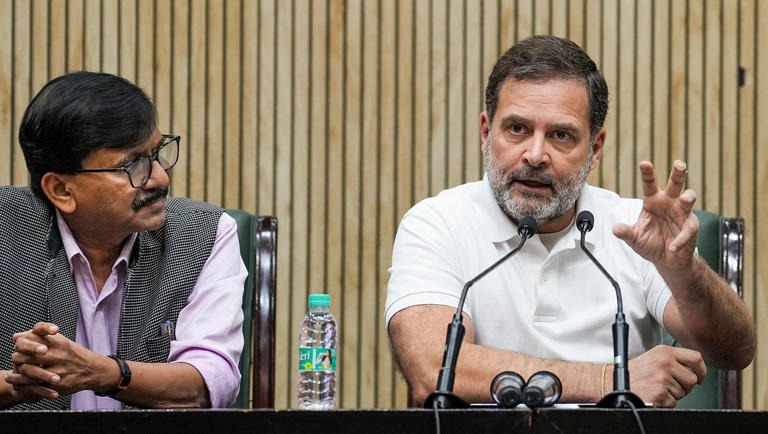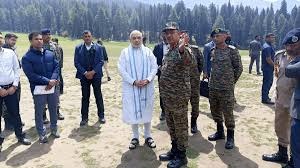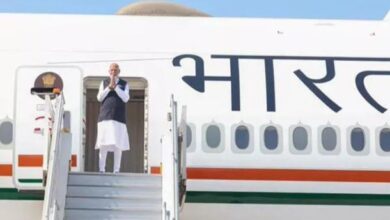
New Delhi, India – In a development that has sparked widespread debate across political circles, an FIR (First Information Report) has been registered against Rahul Gandhi following allegations that he made “anti-national statements.” The incident, which unfolded in New Delhi, has sent shockwaves through the political community, raising serious questions about the boundaries between free speech and national security.
Incident Overview
Late last week, law enforcement agencies in New Delhi received a formal complaint alleging that Rahul Gandhi made remarks considered to be against the national interest. The FIR, which is now under active investigation, charges the political leader with statements purportedly aimed at undermining national unity and security. According to sources familiar with the case, the complaint has been lodged under provisions that address sedition and activities deemed prejudicial to the sovereignty of India.
“The law applies equally to all citizens. Our duty is to ensure that no individual, regardless of their stature, is above the law,” stated a senior officer from the New Delhi Police.
Background and Context
Rahul Gandhi, a prominent figure in Indian politics and a vocal critic of current government policies, has often been at the center of controversy. Over the years, his speeches and public statements have drawn both fervent support and sharp criticism. In recent times, heightened political polarization has seen every remark under intense scrutiny, with legal and political repercussions.
The current FIR comes amid an atmosphere where national security and the sanctity of the state are at the forefront of public discourse. Critics argue that certain statements, when interpreted outside their context, can fuel dissent and disrupt social harmony. Conversely, supporters of Rahul Gandhi claim that his comments fall within the ambit of free speech and are part of a broader critique of government policies.
Official Reactions and Statements
Following the registration of the FIR, officials from the New Delhi Police and the Ministry of Home Affairs have issued statements emphasizing the importance of a thorough and impartial investigation. A spokesperson for the police mentioned that while the case is in its nascent stage, every piece of evidence will be meticulously examined to determine the veracity and intent behind the alleged statements.
“The investigative process is ongoing, and we are committed to ensuring that the truth is uncovered without any external interference,” remarked the police spokesperson.
Political leaders from various parties have also weighed in on the matter. While some have condemned the move as politically motivated, others have welcomed the legal scrutiny, suggesting that the incident serves as a reminder that all public figures must exercise caution in their discourse.
Legal Implications
The FIR against Rahul Gandhi raises critical questions about the intersection of free speech and national security in India. Legal experts have noted that while the right to express dissent is fundamental, it is not without limitations—especially when such expressions are perceived to threaten the nation’s integrity. The case is likely to become a landmark in debates over sedition laws and their application in modern democratic societies.
“This case could set a significant precedent. The balance between protecting free expression and ensuring national security is delicate, and our judicial system must navigate it carefully,” observed a noted legal analyst from New Delhi.
The investigation will examine the context in which the statements were made, the language used, and the potential impact on public order. The outcome could have far-reaching implications not only for Rahul Gandhi but also for future cases involving political speech and dissent.
Political and Public Reactions
The response to the FIR has been polarized. Supporters of Rahul Gandhi have decried the legal action as an attempt to stifle dissent and curtail freedom of expression. Many have taken to social media to express their dismay, using hashtags such as #FreeRahulGandhi and #ProtectFreeSpeech to rally support.
Conversely, some political commentators and citizens argue that such measures are necessary to maintain order and uphold national interests. They contend that in times of heightened security concerns, it is essential for public figures to exercise responsibility in their speech.
A prominent member of an opposition party stated,
“We believe that no one should be immune from accountability. However, it is equally important that this investigation is conducted fairly, without any bias.”
Looking Forward: The Road Ahead
As the investigation unfolds, all eyes will be on the legal proceedings and the subsequent political fallout. The case is expected to spark intense debates in both parliamentary sessions and public forums. Analysts predict that the FIR could influence the national discourse on freedom of expression and set new standards for how politically sensitive remarks are handled by the law.
Government officials have assured that the process will be transparent, and the public will be kept informed of significant developments. In the meantime, the political landscape remains charged, with various stakeholders awaiting further clarifications and judicial pronouncements.
Conclusion
The FIR registered against Rahul Gandhi for allegedly making “anti-national statements” marks a critical juncture in Indian politics. With legal experts, political leaders, and the public closely watching the case, its outcome will likely shape the contours of free speech and national security debates for years to come. As the investigation continues, it remains imperative that the process is conducted impartially, ensuring that the principles of justice and democratic discourse prevail.










